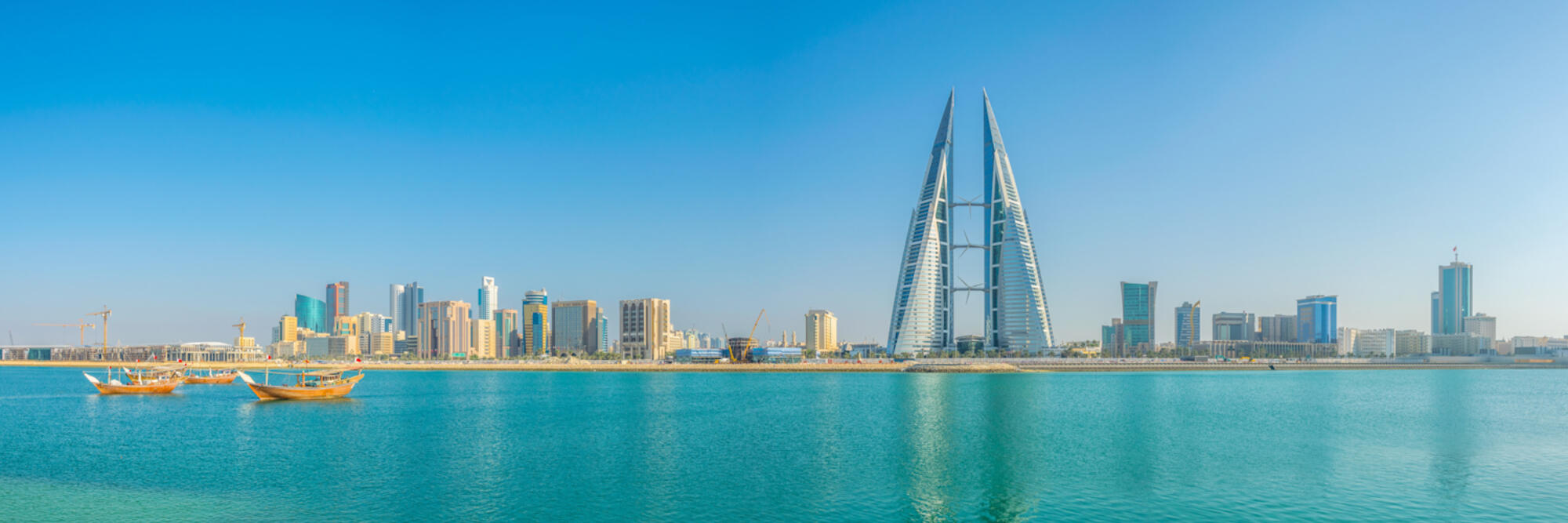With the kids long grown-up and gone from home, Susie retired from her job and headed with her husband to Bahrain in early 2010. She takes a moment to tell Expat Arrivals just what life in Bahrain is all about – and honestly, it sounds delightful.
Read more about Bahrain in the Expat Arrivals Bahrain country guide or read more expat experiences in Bahrain.
About Susie
 Q: Where are you originally from?
Q: Where are you originally from?
A: The UK
Q: Where are you living now?
A: Manama, specifically in the Juffair area.
Q: How long you have you lived here?
A: Since February 2010
Q: Did you move with a spouse/children?
A: With my husband, our children are grown up and have flown the nest.
Q: Why did you move; what do you do?
A: My husband joined a new company as a Middle East consultant (IT). I retired from my job in Europe to move with him.
About Bahrain
Q: What do you enjoy most about Bahrain, how’s the quality of life?
A: Life in Bahrain is laid back and good, fairly typical of island life anywhere. I enjoy the friendliness of everyone and the opportunities to meet people from many cultures.
Q: Any negatives? What do you miss most about home?
A: Only one negative and that is the heat and humidity in the summer months, but it can be avoided. I miss the green-ness of Northern Europe most, but I don’t miss the rain that comes with it!
Q: Is the city safe?
A: Very safe – except the driving. Drive defensively, always wear a seatbelt and don’t drive if it has recently rained.
About living in Bahrain
Q: Which are the best places/suburbs to live in Bahrain as an expat?
A: Juffair in the northeast of the main island is popular with Americans as it is close to the US Navy base. It’s mostly modern apartment blocks so also popular with other expats and Saudi visitors.
Adlyia is where many of the restaurants are, this area and the adjoining suburbs of Mahooz and Umm Al Hassam are also popular with those who prefer to be in close proximity to nightlife.
West of the city centre is Budaiya where many expat families live, usually in compound villas. I believe the schools in the area are good, and the Dilmun Club and the Bahrain Rugby club are both located here.
Finally, there is Amwaj Islands in the Floating City. The villas here are very pretty and situated around a series of canals, so it’s trendy and popular; but there are few amenities other than the beach.
Q: How do you rate the standard of accommodation?
A: Good to excellent.
Q: What’s the cost of living compared to the UK? What is cheap or expensive in particular?
A: It's a lot cheaper than the UK unless you want to buy specific things from home. European clothes, alcohol and some western foods are very expensive but petrol, eating out and general food shopping are much less expensive than home.
Q: What are the locals like; do you mix mainly with other expats?
A: The Bahrainis are extremely friendly, but many expats have little contact directly with them unless they join a club frequented by Bahrainis. Most of the workforce here is from the Indian sub-continent, and you will find them friendly and helpful too.
Q: Was it easy meeting people and making friends?
A: Yes – we joined two clubs: The British club because it was close to our apartment so somewhere easy to go for a drink or a meal, and the Bahrain Yacht Club because we love sailing. In the latter we have made many friends from many nations including Bahrainis, English, French, Indonesian, New Zealanders and Americans.
About working in Bahrain
Q: Did you have a problem getting a work visa/permit?
A: Yes – this is ongoing. The situation is quite complex for an international company trying to set up a base in Bahrain.
It can be resolved but not easily when a corporate giant meets seemingly inflexible rules. Working for a local company or a government organisation makes it easier to sort through the regulatory system.
Q: What’s the economic climate like in Bahrain, is there plenty of work?
A: I believe so, but as I am not working and my husband is employed by an American company it is difficult to tell. Bahrain does not seem to have been hit by the global downturn quite as hard, as have many countries.
There are some building projects that have come to a halt but many new buildings and land reclamation projects are ongoing, and people are still making purchases in the shops. Not to mention, new shops continue to open in the malls. From our personal experience people seem confident.
Q: How does the work culture differ from home?
A: It’s a work hard ethic, people here seem much more dedicated to their work than in the UK but they also play hard and everyone is positive.
Family and children in Bahrain
Q: Did your spouse or partner have problems adjusting to their new home?
A: No, he has worked in many countries including other Middle Eastern countries in the past.
Q: What are the schools like, any particular suggestions?
A: I don’t have children in schools, though my friends do. From talking to them and my teacher friends, it's become clear there's a wide choice of curricula available on the island. Thus it's necessary to first decide which system you want your children educated in eg British, French, Indian, Arabic etc. Of the British system schools St Christopher’s seem the most popular, but has a lengthy waiting list.
Q: How would you rate the healthcare?
A: You need medical insurance and then it is easy to get care. We’ve had little contact with the system, but when we did need a GP’s help the Bahrain Specialist Hospital were very good.
And finally…
Q: Is there any other advice you like to offer new expat arrivals?
A: Don’t expect everything to work – the 80-20 rule applies to almost every aspect of life here. Bahrain is a kingdom and the monarchy is absolute which is very different to European democracy. Take island expat life as it comes and join in, you will get far more out than you put in as long as you make an effort to contribute.
Take time to find an area to live close to the clubs that relate to your interests and the schools that you want your children to attend, otherwise, you could find yourself doing a lot of driving in the summer heat.
– Interviewed December 2010



